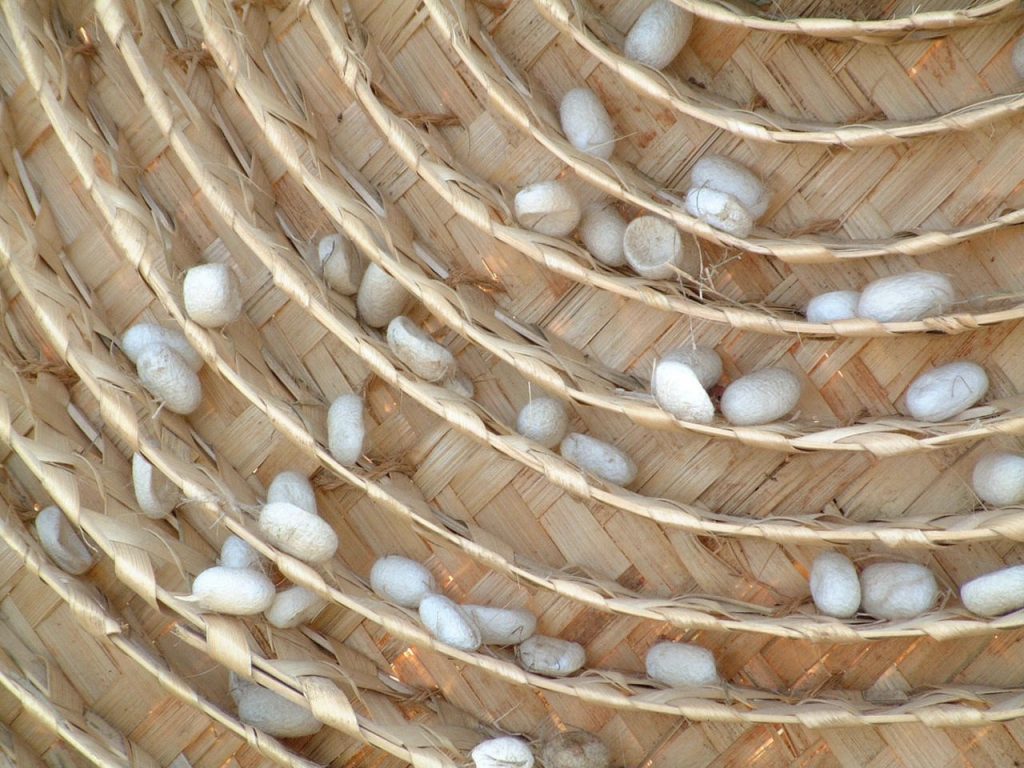Silk versus Titanium
Natural systems can inspire us to produce and consume in a sustainable way. That’s what Gunter Pauli, former CEO of Ecover and member of the Club of Rome, shows in his book ‘Blue Economy’.
A whole chapter dedicated to silk
For centuries, the planting of mulberry trees ensured a fertile soil. These trees attract the silkworm, whose feces improve the soil. Pauli pleads in his book for a massive reforestation of the mulberry tree to regenerate top soils all over the world while reducing CO² emissions.
Around 1900, a million tons of raw silk was produced, now less than 100,000 tons. The perspective of silk in the textile world is quite modest, due to the higher price. No need however, with its exceptional tension, flexibility and strength the future of the silk polymer reaches far beyond the borders of the fashion world.

Sharp as silk
Every year 10 billion razors are produced, which accounts for 250,000 tons of high quality metals. Instead of cutting keratin (hair) with a blade, silk threads could roll over the skin chopping off the hair tops just like the old hand-powered grass mowers used to do.
Soft as silk
In cosmetics, many artificial polymers are used for fixing, thickening, foaming …. Natural silk polymers can do the same!

Doctor silk
For many years, silk wire has been used for sutures. Because silk is made up of proteins, there are no rejection phenomena and consequently the wire must not be removed. A recent idea is to use silk in the creation of artificial skin and yes, also artificial joints and orthopedic prostheses.
Gunter Pauli, just an other dreamer? Nothing is less true: as a real entrepreneur, he shows that the rearing of the mulberry tree and silk does not only provide soil recovery and less CO² emissions, but also enough job creation to maintain our prosperity.
A promising evolution … hopefully the blue economists will leave enough silk to produce our beautiful scarves 🙂
– July 11th 2017 –
www.theblueeconomy.org
FreeImages.com/Nazli Ipek
FreeImages.com/Wayne Dodge
